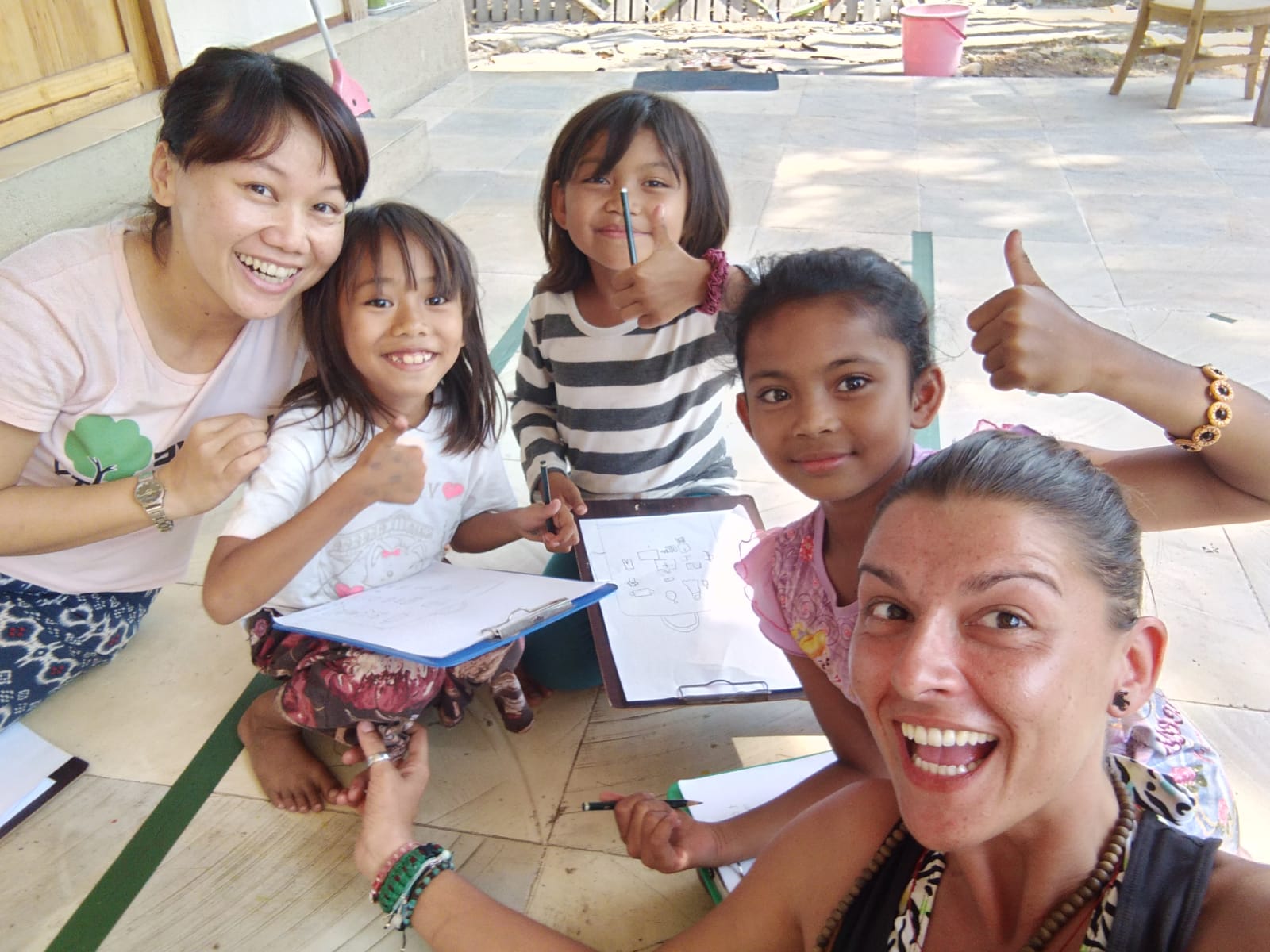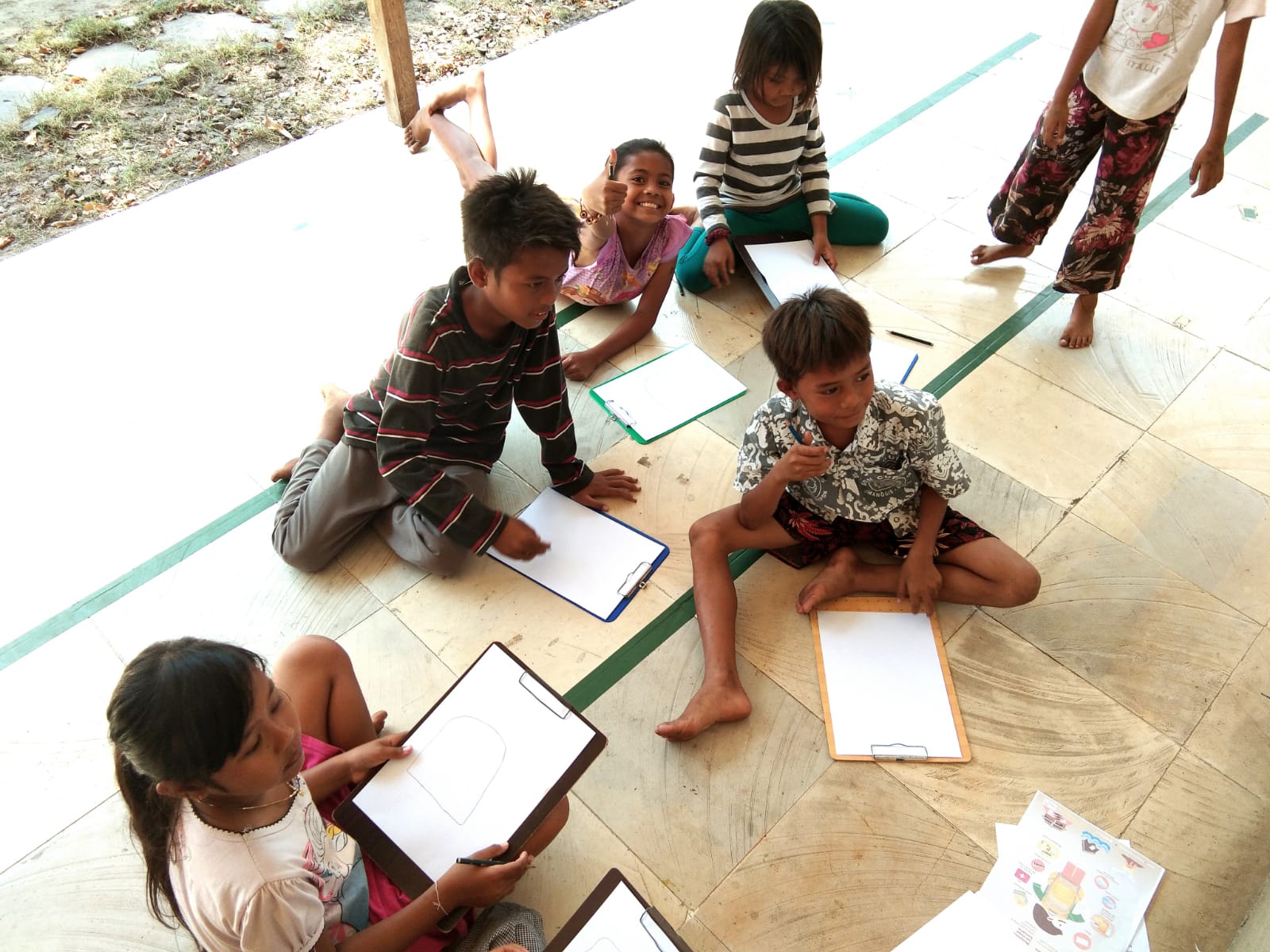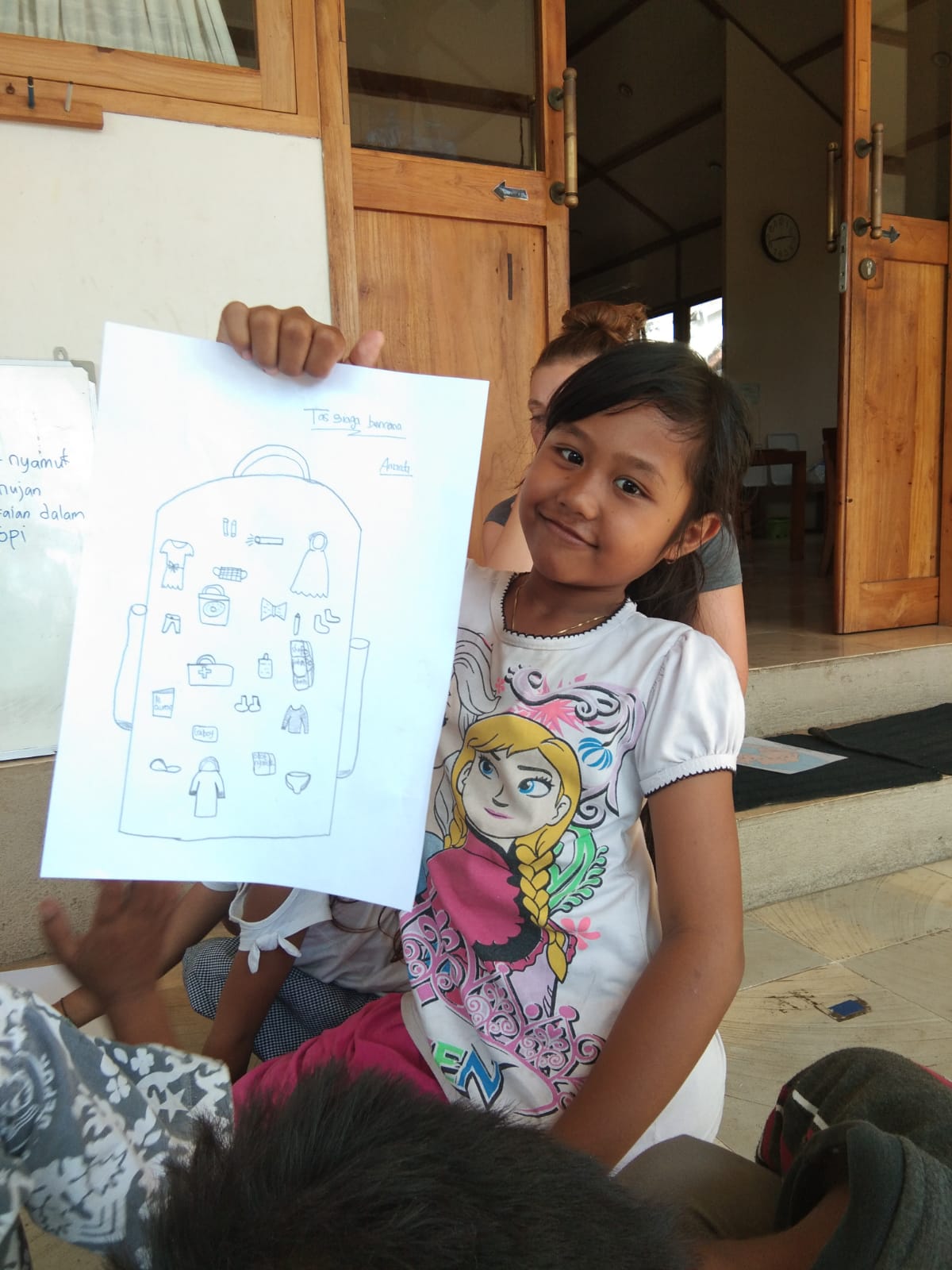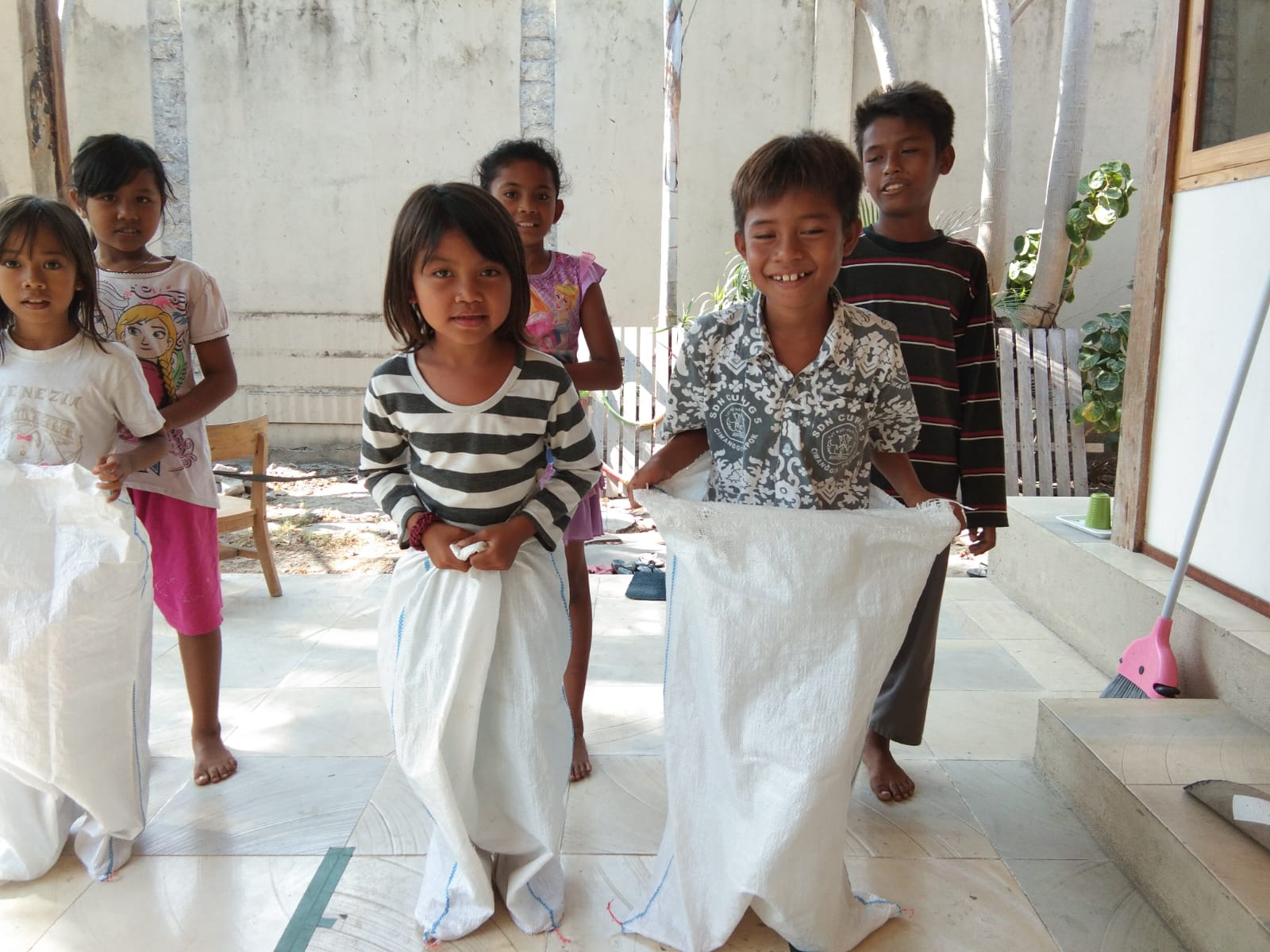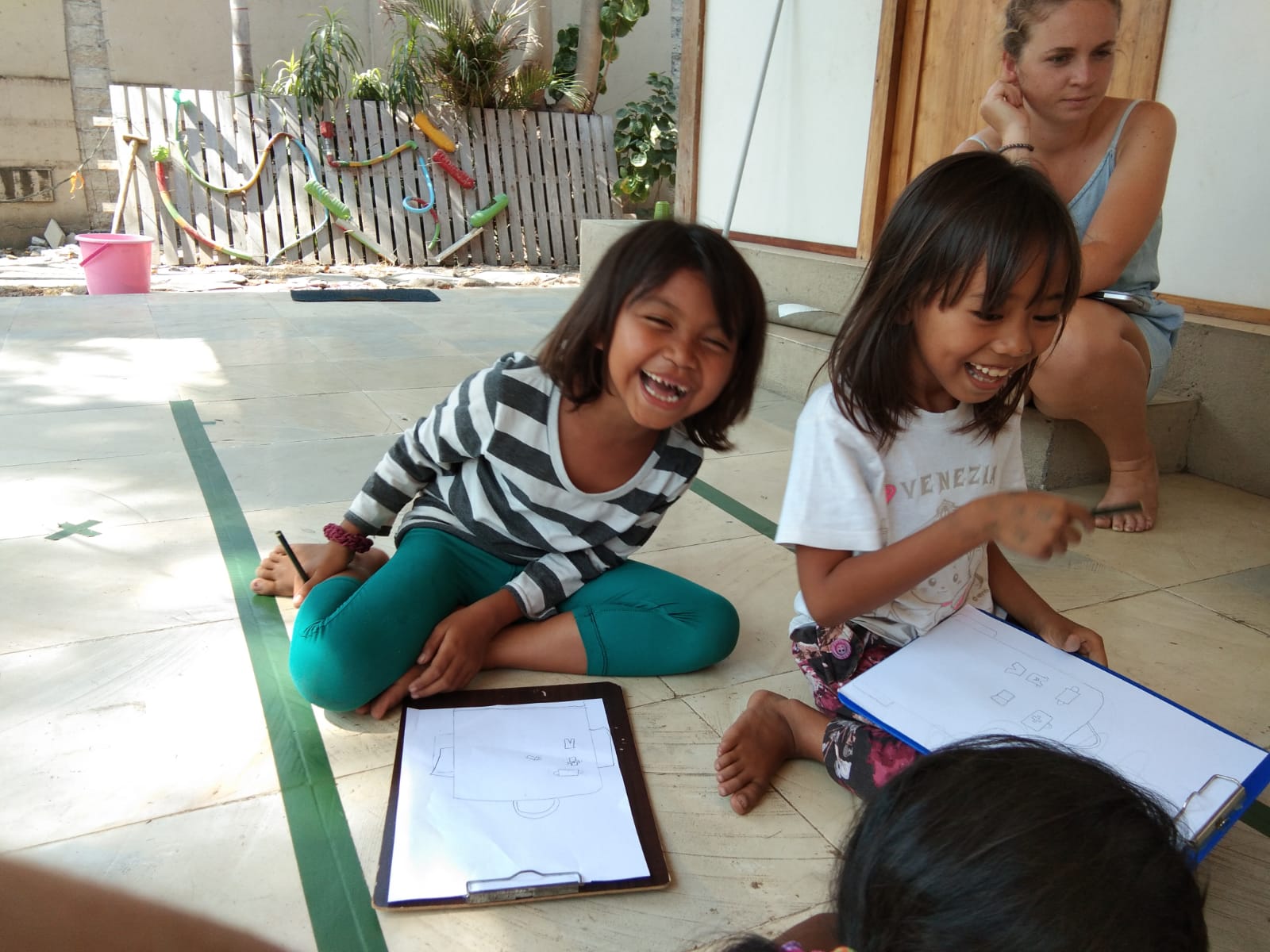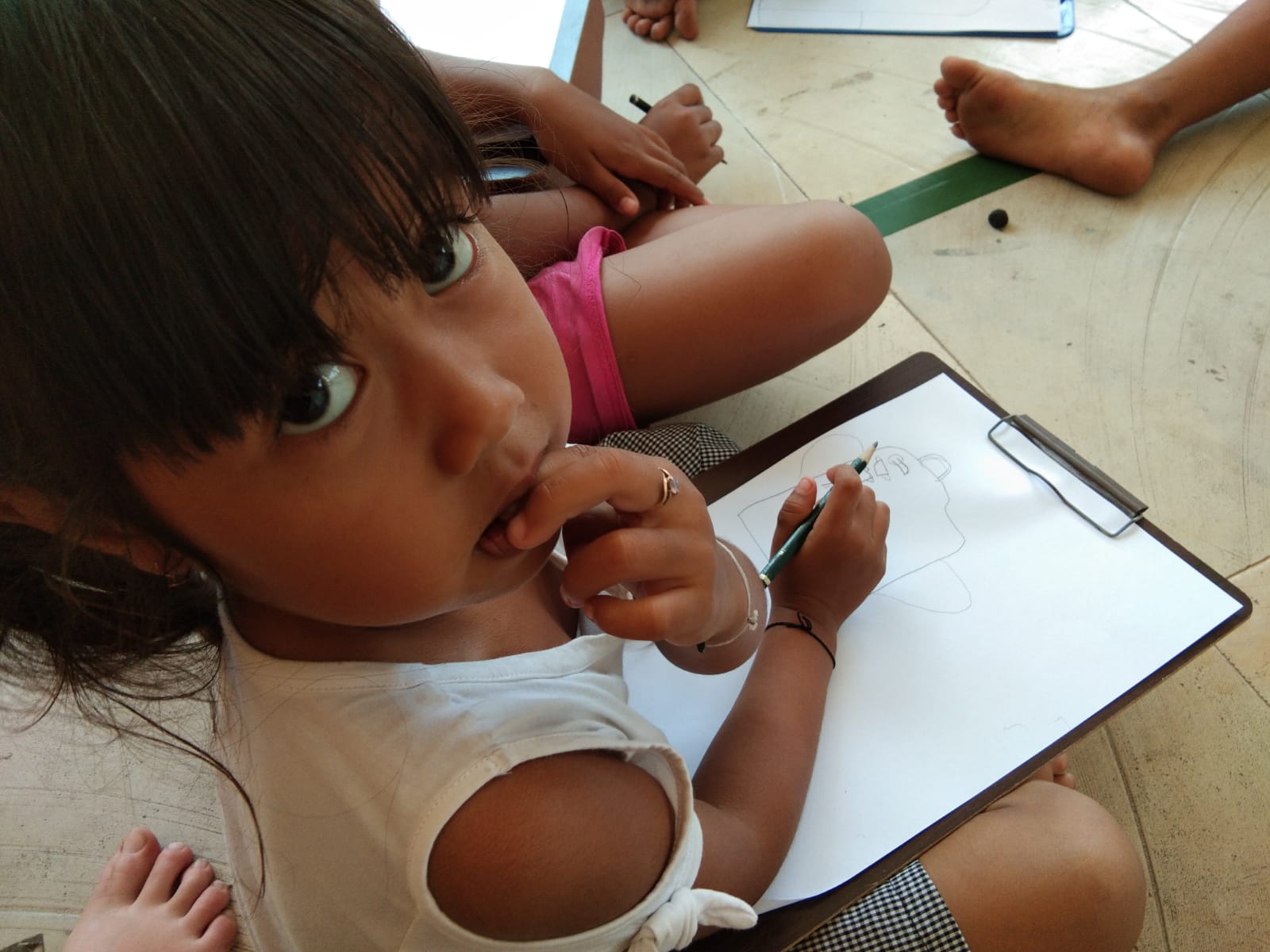 Since earlier this year, we have been successfully cooperating with Gili Eco Trust, a local NGO based on the Gili Islands close to Bali. We already run different workshops in which the children have learned how to protect the environment and used trash to release their creativity to create figures, cars and more.
Since earlier this year, we have been successfully cooperating with Gili Eco Trust, a local NGO based on the Gili Islands close to Bali. We already run different workshops in which the children have learned how to protect the environment and used trash to release their creativity to create figures, cars and more.
 On the 5th of August, Gili Trawangan and the north of Lombok was hit by a 7.0 magnitude earthquake and more than 1,000 aftershocks in the month to come. Homes, shops and sadly, the local schools were all badly damaged or destroyed. Thanks to action from the government, temporary tents have been installed and children are now back to learning in morning camps at the field and in playgrounds away from damaged buildings.
On the 5th of August, Gili Trawangan and the north of Lombok was hit by a 7.0 magnitude earthquake and more than 1,000 aftershocks in the month to come. Homes, shops and sadly, the local schools were all badly damaged or destroyed. Thanks to action from the government, temporary tents have been installed and children are now back to learning in morning camps at the field and in playgrounds away from damaged buildings.
 As things are slowly returning to normal and the island is being cleared of rubble and destroyed buildings, the local NGO, Gili Eco Trust have finally re-opened our Saturday classes. The first week only four children attended our supplementary class as many children were evacuated to Lombok so their families could help rebuild villages and their parents were afraid to return home to Gili. These kids enjoyed 2 hours with the volunteers of the Gili Eco Trust, playing games, singing songs and talking about the world today and how it was different 2000 years ago. The next week, a further six children showed up and the volunteers had prepared more games and activities to distract them and give them a chance to relax, play on the school equipment and forget about the trauma of the last months.
As things are slowly returning to normal and the island is being cleared of rubble and destroyed buildings, the local NGO, Gili Eco Trust have finally re-opened our Saturday classes. The first week only four children attended our supplementary class as many children were evacuated to Lombok so their families could help rebuild villages and their parents were afraid to return home to Gili. These kids enjoyed 2 hours with the volunteers of the Gili Eco Trust, playing games, singing songs and talking about the world today and how it was different 2000 years ago. The next week, a further six children showed up and the volunteers had prepared more games and activities to distract them and give them a chance to relax, play on the school equipment and forget about the trauma of the last months.
 Each week the island is becoming more busy, the school camps are running every morning and we hope that more and more children will come again to our Saturday green classes. This week, the volunteers have planned sessions about the underwater life around the Gili Islands. Our next 6 weeks of classes will help to learn about aquatic life and learn how to keep the oceans clean. Our up and coming games and projects include games to clean the beach together and learn how to separate the rubbish that they find, to think how it got there in the first place and why it is so important to recycle it as well.
Each week the island is becoming more busy, the school camps are running every morning and we hope that more and more children will come again to our Saturday green classes. This week, the volunteers have planned sessions about the underwater life around the Gili Islands. Our next 6 weeks of classes will help to learn about aquatic life and learn how to keep the oceans clean. Our up and coming games and projects include games to clean the beach together and learn how to separate the rubbish that they find, to think how it got there in the first place and why it is so important to recycle it as well.
